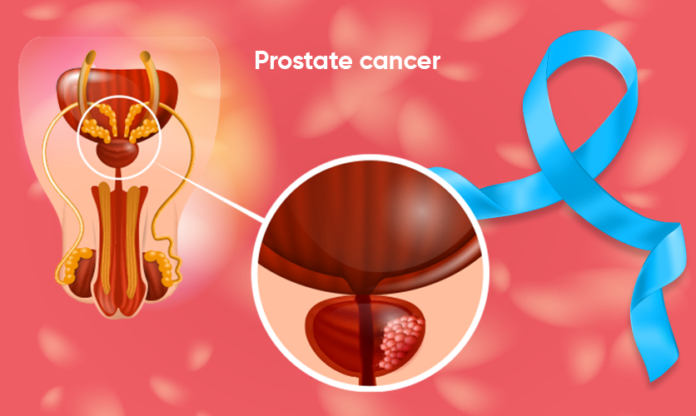Prostate cancer is the second deadliest disease in the world. The American Cancer Society estimates that almost 268,490 men get prostate cancer yearly, and around 34,500 men die annually due to this fatal disease. However, there are several prostate cancer symptoms that one can experience before being diagnosed with this disease.
Furthermore, like other cancer types, there are multiple prostate cancer stages in men worldwide. Each type can be cured with a specific medicine and therapy. Abiraterone Acetate is a common and effective medicine for prostate cancer patients. So, what exactly is this prostate cancer, and how can Abiraterone Acetate API be used for treating prostate cancer?
Let’s explore everything in our blog below!
Table of Contents
What Is Prostate Cancer?
Prostate cancer is a type in which the cancer cells begin growing around the prostate glands in males. The prostate glands in men are small walnut-shaped glands in males responsible for producing the seminal fluid.
Although prostate cancer is a serious concern in males, there are some cases where these cancer cells grow slowly and may not cause serious harm. However, these cancer cells grow aggressively in most cases and cause serious harm if not treated timely.
Hence, one must understand prostate cancer symptoms to detect it early. After analyzing the accurate prostate cancer stage, the doctor can easily prescribe suitable medicine, including Abiraterone Acetate.
Stages of Prostate Cancer
The American Cancer Society categorizes prostate cancer stages into four types. These stages can further be divided based on the effects of the cancer cells on the body.
Stage 1
In prostate cancer stage 1, cancer can either be seen via an ultrasound exam or can be felt by a needle. In this stage, the cancer cells are at their primary level and have not spread to other body parts other than the prostate. According to the node size, there are two categories in prostate cancer stage 1.
cT1, N0, M0 (PSA Less than 10)
cT2a, N0, M0 (PSA Less than 10)
Stage 2
Prostate cancer stage 2 can be classified as an advanced level of stage 1 cancer. The cancer cells can be seen in this stage via a rectal exam or ultrasound imaging. In this prostate cancer stage, the cancer cells have not spread outside the prostate or any nearby lymph nodes. The second stage of prostate cancer is categorized into three levels, namely A, B, and C, based on the PSA levels.
Stage 3
In prostate cancer stage 3, cancer might have spread outside the prostate gland. The cancer cells have reached the seminal vesicles or other tissues near the prostate gland. At this stage, the patient may experience pain and other prostate cancer signs as per the condition.
Stage 4
That’s the final prostate cancer stage seen in the patients. At this stage, the cancer cells have already spread to the nearby lymph nodes and may have spread to other body parts such as bones and organs. According to the patient’s condition, the doctors p[resctibes them medicine, surgeries, or therapy options.
Five Warning Signs of Prostate Cancer
Now that we have explored the definition of prostate cancer and its stages, let us quickly discuss the five warning signs that can help you detect cancer at an early stage. You must consult your doctor immediately if you ever feel any of these signs.
- Frequent urination during the day and even at the night time
- Weak or interrupted urine flow or the need to strain to empty the bladder
- Blood in the urine
- Pain or burning sensation felt by the patient when ejaculating.
- Erectile dysfunction
Those are some of the common symptoms of prostate cancer at an early stage. However, the patient can sometimes discover prostate cancer at very later stages. In such cases, the signs are a bit different.
- Fatigue, pain in the back, hips, thighs, etc.
- Swelling in legs and feet
- Rapid weight loss
- Irregular bowel habits
Abiraterone Acetate: Medicine to Treat Prostate Cancer
Abiraterone Acetate is an excellent medicine used for treating prostate cancer in men. Abiraterone Acetate API belongs to the anti-androgen drug category, which limits testosterone production. It eventually limits the spread and growth of prostate cancer cells as they grow with testosterone. It is commonly sold by the name Zytiga.
The chemical properties of Abiraterone Acetate are as follows:
Chemical Formula: C24H31NO
Weight: 349.509
ALogP: 5.4
CAS Number: 154229-19-3
InChI Key: GZOSMCIZMLWJML-VJLLXTKPSA-N
IUPAC Name: (3aS,3bR,7S,9aR,9bS,11aS)-9a,11a-dimethyl-1-(pyridin-3-yl)-3H,3aH,3bH,4H,6H,7H,8H,9H,9aH,9bH,10H,11H,11aH-cyclopenta[a]phenanthren-7-ol
SMILES: [H][C@@]12CC=C(C3=CC=CN=C3)[C@@]1(C)CC[C@@]1([H])[C@@]2([H])CC=C2C[C@@H](O)CC[C@]12C
Overall, two approved indications of Abiraterone Acetate API and 53 experimental indications, including Brain Neoplasms, Anemia, Adrenal Hyperplasia, Congenital, etc.
You can learn more about Abiraterone Acetate API here!
Conclusion
Prostate cancer is one of the most common diseases happening in males worldwide. However, by identifying prostate cancer signs at an early stage, one can significantly increase the chances of beating the disease. The doctors can determine the cause and stage of your prostate cancer to prescribe the right medicines like Abiraterone Acetate. Bulat Pharmaceutical is the best manufacturer of pharmaceutical raw materials, manufacturing high-quality API at competitive prices.
Our core mission is to manufacture raw materials that help pharma companies to launch high-grade and high-performing medicine for treating different diseases. The company is widely respected for its unique offering, including active ingredients, raw materials, excipients, and additives in one place, and the high quality and purity of raw materials that it distributes to major pharmaceutical companies worldwide, including those in Poland.


